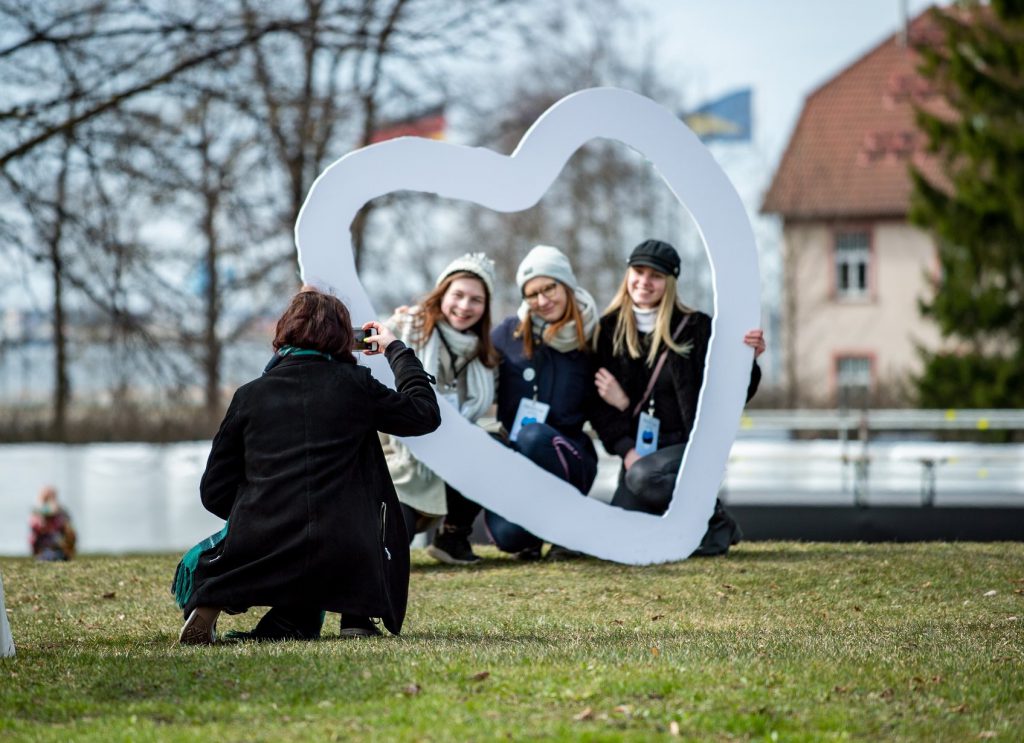Dmitri Fefilov, a journalist at the Estonian Russian-language business newspaper, Delovõje Vedomosti, says the life of Estonians and Russians in the country used to be a game of national belonging, and he doesn’t want to be pulled into it again.
People play different games in this world. Through games, one can prove oneself, feel like a part of a team, feel superior and be filled with the sweetness of victory. In Estonia, like elsewhere in the world, a game that I like to call, “the game of national belonging”, is played in different ways.
This was especially popular here in the 1990s.
“We are braver, more audacious, but also livelier that you,” shouted the Russians.
“But we are more successful and more necessary for this country,” said the Estonians. So, the score was 1:1.
“We are the representatives of a great people!” the Russians said.
“But we are the little people who have fought for the freedom of our country from big people like you,” replied the Estonians. And again, we had a draw – 2:2.
“Hundreds of millions of people all over the world speak our language,” said the Russians, unwilling to give up. “Our language is a major language.”
“But in this country, it will not help you.” 3:3.
“Russia is one of the biggest nations in the world!”
“But you live in one of the smallest ones.” 4:4.
“We saved you from fascism.”
“You occupied us!”
The game may develop into a conflict
I don’t know how, but by a miracle at that time the game did not develop into anything terrible. The limits of “the game of national belonging” are in general not easy to understand. Today you may play the game but tomorrow it may already develop into a conflict, then to hatred and at the end there will be war.
And it is not easy to understand if it still a game or already something more dangerous. Usually, you start understanding only when it is already too late.
Now, when I look back in time, I understand that what appeared to be a game could have had quite serious consequences. There was no shortage of such precedents.
The problem is that, in this game, everyone has their own truth, which makes it almost impossible to win. You may not agree with this, but as soon as you enter the debate you transform into a party in the game of national belonging.
The longer you play the game, the more it captures you and eggs you on, the more you want to win and prove that you are better or more correct than your opponent. Finally, when you have emptied your arsenal of arguments, you have a passionate desire to destroy your opponent. So, we actually know the outcome of such games from the start.
The main truth is the same for everyone
But fortunately, we no longer live in the 1990s. The rules of the game of national belonging have become softer and vaguer. Nowadays, we spend time on other games. Like the game of normal life. The rules of this game are quite different, and the main truth is the same for everyone: health, well-being, family, self-fulfilment, success. It is unlikely that you would find anyone among your friends who would like to be an ill, poor and a lonely loser.
But lately I have started being afraid that the game of national belonging may again become more popular than the game of a normal, full life. Of course, I blame everything on the springtime vitamin deficit! We would like to have summer and holidays and it should all be over by autumn.
But the fear does not want to let up. I do not want to play this game again, but I am afraid that it will pull us all in again. And this time, the miracle may not happen.
The above article is based on the speech Fefilov gave at the Kõigi Eesti Laul concert, organised by the grassroots movement Kõigi Eesti at the Tallinn Song Festival Grounds on 14 April 2019. The opinions in this article are those of the author. Cover: People taking photos with the heart symbol used by the Kõigi Eesti movement. Photo by Maido Parv.

